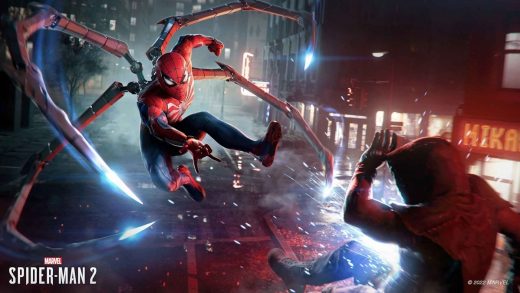:format(webp)/https://www.thestar.com/content/dam/thestar/entertainment/books/reviews/2023/05/09/kathryn-kuitenbrouwer-makes-hay-of-the-secrets-and-lies-of-the-past-in-new-novel-wait-softly-brother/composite_kuitenbrouwer.jpg)
The great film critic Roger Ebert often opined, “it’s not what a movie is about, it’s how it is about it.” The line was something of a credo for the critic, a way of moving past the inherent limitations of originality (when you boil it down, a truly original story is a very rare thing) and focusing instead on what the filmmakers brought to a particular subject.
It’s a credo which comes to mind when reading a book like “Wait Softly Brother,” the stunning new novel by Ontario writer Kathryn Kuitenbrouwer.
From a brief description, the novel sounds familiar: a woman in middle age, fleeing her marriage, ends up in her family home, and is swallowed up by the secrets and lies of the past. A writer by trade, the woman attempts to write her way out of her depression and alienation, building on the scant details of the life of a long-dead relative to create a new novel. That, in a nutshell, is what “Wait Softly Brother” is about.
As one begins reading the novel, however, and begins to see just how Kuitenbrouwer uses the somewhat familiar material, one is quickly dazzled. This, one recognizes quickly, is a great piece of work.
Kuitenbrouwer is no stranger to great pieces of work. Her first book, the short story collection “Way Up,” was a finalist for the Danuta Gleed Award and the ReLit Prize in 2004. Her first novel, “The Nettle Spinner,” was shortlisted for the Amazon.ca First Novel Award in 2005, while her most recent book, 2014’s “All The Broken Things,” was a finalist for the Toronto Book Award, was shortlisted for Canada Reads and was a national bestseller. In the time since that book, Kuitenbrouwer earned her PhD in English Literature from the University of Toronto.
This biographical information is important, as it forms a crucial backdrop for “Wait Softly Brother.” The main character isn’t simply an imagined middle-aged writer; she is, in fact, Kuitenbrouwer herself. Having left her marriage, the writer returns to her rural childhood home to work on a new novel, about her lost brother.
“‘A novel about Wulf?’” her therapist asks.
“‘Well, auto-fiction.’
‘What’s that? Like memoir but not true? Kathryn, Wulf never lived.’
‘I know. I know.’ That in itself feels sad enough to occupy a story.”
Firmly and deliberately established in the realms of auto-fiction (simply put, a fictionalized autobiography, though a full definition is a wonderful rabbithole to spend an afternoon in), the novel, however, shifts almost imperceptibly into the realm of myth and folklore. Rain, for example, begins the day of Kuitenbrouwer’s arrival, and doesn’t stop for weeks, the land growing soppy, then flooding outright, isolating the house and its residents. In addition, Kuitenbrouwer’s investigation into her brother soon comes to incorporate stories of a selkie (a being who can shift between seal and human forms, by donning and shedding their skin) in the family. And there is so much more, from a mysterious doll to a boy in the forest, and so on.
Playing with fiction, auto-fiction, and mythic fiction, the novel also includes the novel which Kuitenbrouwer ends up writing during the deluge. No, it’s not about her brother Wulf. (Or … is it?) Based on a single letter addressed to her great-great-great grandfather, Russell Boyt, the novel is the story of what happened when Boyt took on the job of substitute soldier in the American Civil War, paid to fight on behalf of an American businessman who designs prosthetic limbs. In part, it’s a means for Boyt to raise money to finish med school. In the main, though, it’s his way of escaping his family.
Of course, no one at the time knew just how terrible the Civil War would be, and Boyt is at the heart of it.
If this description seems complex or confusing, it’s because “Wait Softly Brother,” like the best fiction, defies easy summary. As a reading experience, it is utterly transfixing, constantly surprising, and truly a wonder to behold. As Kuitenbrouwer (the author? The character? Both?) explains early on, “It is true that if you scratch at the threads of any narrative, you discover that it is just another enchantment. You discover that there is no such thing as realism. All of it is just made up. All of life, all of everything.”
Rich with the true stuff of imagined lives, and the imagined stuff of true lives, “Wait Softly Brother” is a glorious enchantment indeed.
JOIN THE CONVERSATION
does not endorse these opinions.


